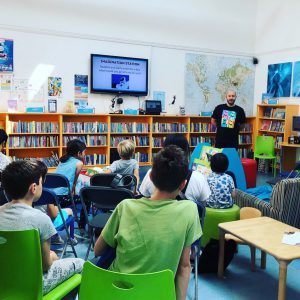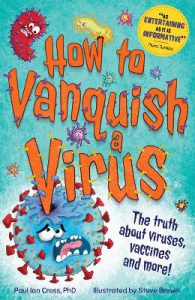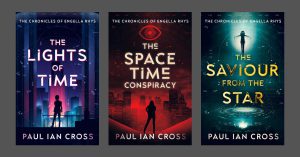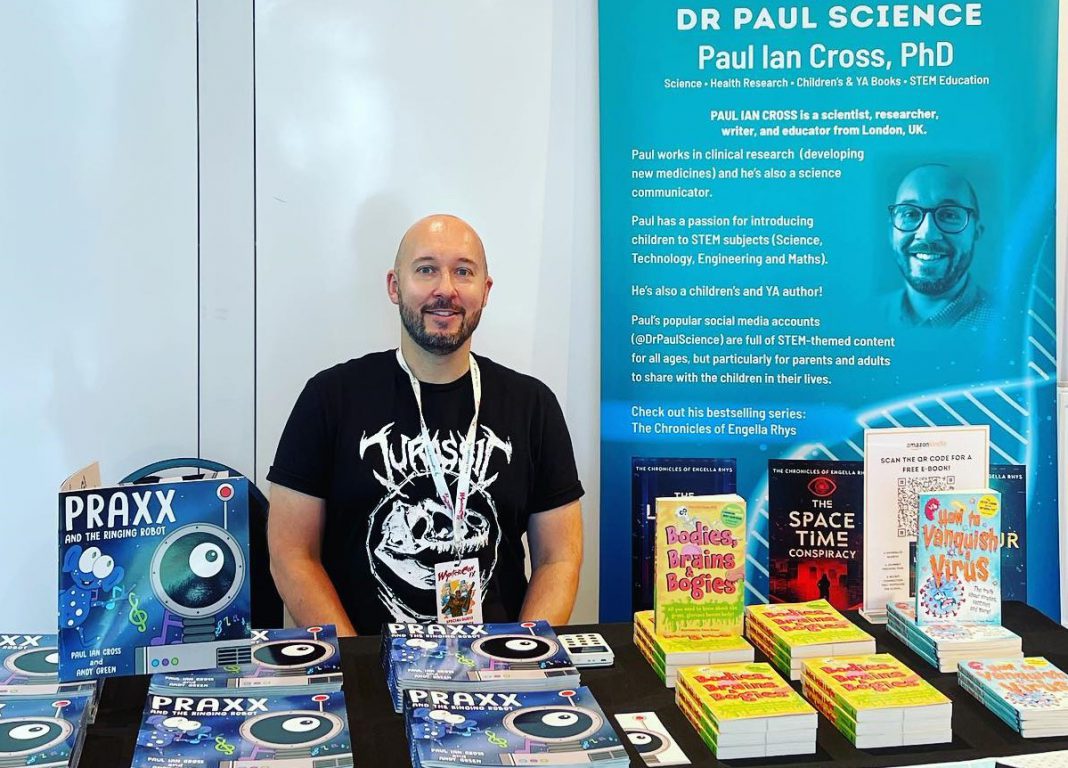With the onset of the Covid pandemic, people were inundated with scientific information on the nature of the virus, how it was spread and treated, theories of epidemiology, and advice on testing and vaccinations, along with plenty of misinformation and speculation. At its height, the daily press conferences by ministers and medical scientists with their presentations (“Next slide please”), graphs, statistics, advice and ever-changing guidelines and rules, caused many people to think about the work of scientists and the role of science in our lives. One of the important aims of these briefings was to communicate to the public, a situation which, due to its unique nature, was often changing, as understanding about the virus grew.
Communicating about science and scientific processes to non-scientists has always been important but it is even more crucial in these days of pandemics, climate change, the rise of artificial intelligence, and the digitalisation of many aspects of our lives. Local resident, Dr Paul Ian Cross, scientist, researcher, and writer on science, believes that good communication is at the heart of his work.
He studied biology at Nottingham Trent university, going on to work as a clinical research scientist developing new medicines, co-ordinating with doctors and patients in clinical trials. This led to a PhD researching the risks-benefits in clinical trials of medicines, considering the voices of the patients, their experiences and emotions, as well as the experiences, beliefs and biases of the doctors.
Paul is a member of #TeamHalo, a UN backed initiative where doctors, healthcare workers, and scientists share accurate information about healthcare, science, and the Covid-19 vaccines, and to counteract misinformation. In 2021, Paul was named as a ‘luminary’ at the G7’s Vaccine Confidence summit, in recognition for his science communication work on social media. He is very active on social media, using its various platforms to communicate about STEM subjects to all ages but particularly for parents and children, as well as talks in libraries and schools.

Increasingly, Paul has realised that he really enjoys writing about science clearly, for both the medical profession and for non-scientists. His articles for the American online health information site, Medical News Today, give clear, evidence-based information on a variety of topics.
Communicating about science is his passion: “It is important that people understand that there is a scientific consensus but also that science is messy: you learn, you add to the evidence and adapt. Facts are disproved or adapted over time. But we must also be honest about the limitations of science research and the benefits and the risks of medicines and how we balance population risk versus individual risks.”
It is this messiness that, Paul believes, made some people distrust the scientists during the pandemic because advice and information changed as scientists collected more data and understood more clearly what was happening, at fast pace. It is up to scientists to explain the scientific process, to explain the data in a way that people can understand, and this is one of the things that he aims to do in a fun and accessible way on his Tik Tok, Instagram, Twitter, and Facebook platforms which can cover anything from latest medical advice to photos of space, to ComicCon and WynterCon sci-fi exhibitions to photos of animals (including his cat!).

Paul has published several books for children and young adults. There are two illustrated fun and informative science books for children: How to Vanquish a Virus, a response to Covid and vaccinations; and Bodies, Brains and Bogies about the human body. He is just finishing the third in the series, Cyborgs, Genes and Tiny Machines on the future of medicine including topics such as robotics and nanotechnology. An award-winning sci-fi picture book for young children is also available to download for free, Praxx and the Ringing Robot and he has a series of science fiction, fantasy novels in The Chronicles of Engella Rhys for teens.

It is interesting to talk to Paul about what he considers to be the most pressing issues for the NHS. As a priority, dealing with staff shortages and burnout from the stresses of the pandemic is paramount but he also expresses concerns over the effects of inflation and of possible cuts on services. In addition, the NHS will need to continue to tackle the emerging effects of long-Covid such as cardio-vascular problems resulting in increased strokes and heart attacks, amongst other long-term symptoms.
As writing has become an increasing part of his job, Paul decided to move from London to Rye, to give himself more time, space, and peace to write. Like many, he loves the town and the surrounding countryside. Walking and spending time in places such as the Rye Harbour Nature Reserve or the beach has been good for his health and life here continues to inspire him to inspire and inform others.
In times of wild conspiracy theories, easily spread misinformation and a mistrust of science and scientists amongst some, it is more necessary than ever that the processes and belief systems involved to reach scientific conclusions are made as clear and transparent as possible to both those working within science and medicine, and to patients, non-scientists and children – the scientists and medical practitioners of the future. For this reason, Paul Cross’s work is invaluable – informative, fun, analytical and relevant to today’s world.
Image Credits: Paul Ian Cross .



